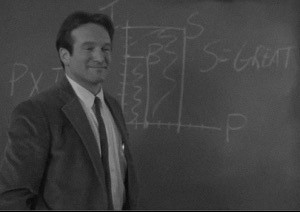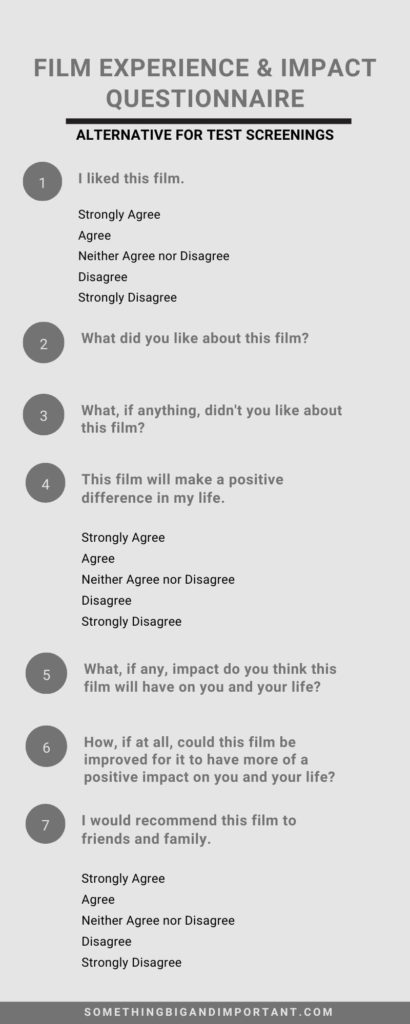Returning to the example used in introducing the topic of my last post, the character John Keating in DEAD POETS SOCIETY (1989) offers a straightforward framework for focusing audience reviews of art such as poetry, and I would add, film: how does it move or impact us (e.g., can I “dance” to it). I believe it to be a better alternative to methods that ask reviewers to dissect and judge the film in largely objective or rational ways.

I have developed a questionnaire (see below) that can begin to provide an alternative (or, at least, a complement) to prevailing test screening questions currently in use, focusing more on how a film is experienced and perceived to impact.

This questionnaire can be used as standalone feedback form distributed (as paper copies) or deployed (as an online or app-based survey) following test screenings; it can also be used as questions to ask in post-screening focus groups or interviews (I would encourage interviews more than focus groups given the new emphasis on individual experience and impact).
This experiential approach to film feedback-giving and feedback-gathering aligns with emerging research on “experiential marketing” (e.g., Batat, 2019) that emphasizes how consumers select products and services based on their overall experiences with them rather than only objective attributes of those products or services and research on how experiences with products (like films) can improve consumers’ well-being (Guevarra & Howell, 2015; Schmitt, Brakus, & Zarantonello, 2015).
References
Batat, W. (2019). Experiential Marketing: Consumer Behavior, Customer Experience and The 7Es. Routledge.
Guevarra, D. A., & Howell, R. T. (2015). To have in order to do: Exploring the effects of consuming experiential products on well-being. Journal of Consumer Psychology, 25, 28-41.
Schmitt, B., Brakus, J. J., & Zarantonello, L. (2015). From experiential psychology to consumer experience. Journal of Consumer Psychology, 25, 166-171.

Leave a Comment